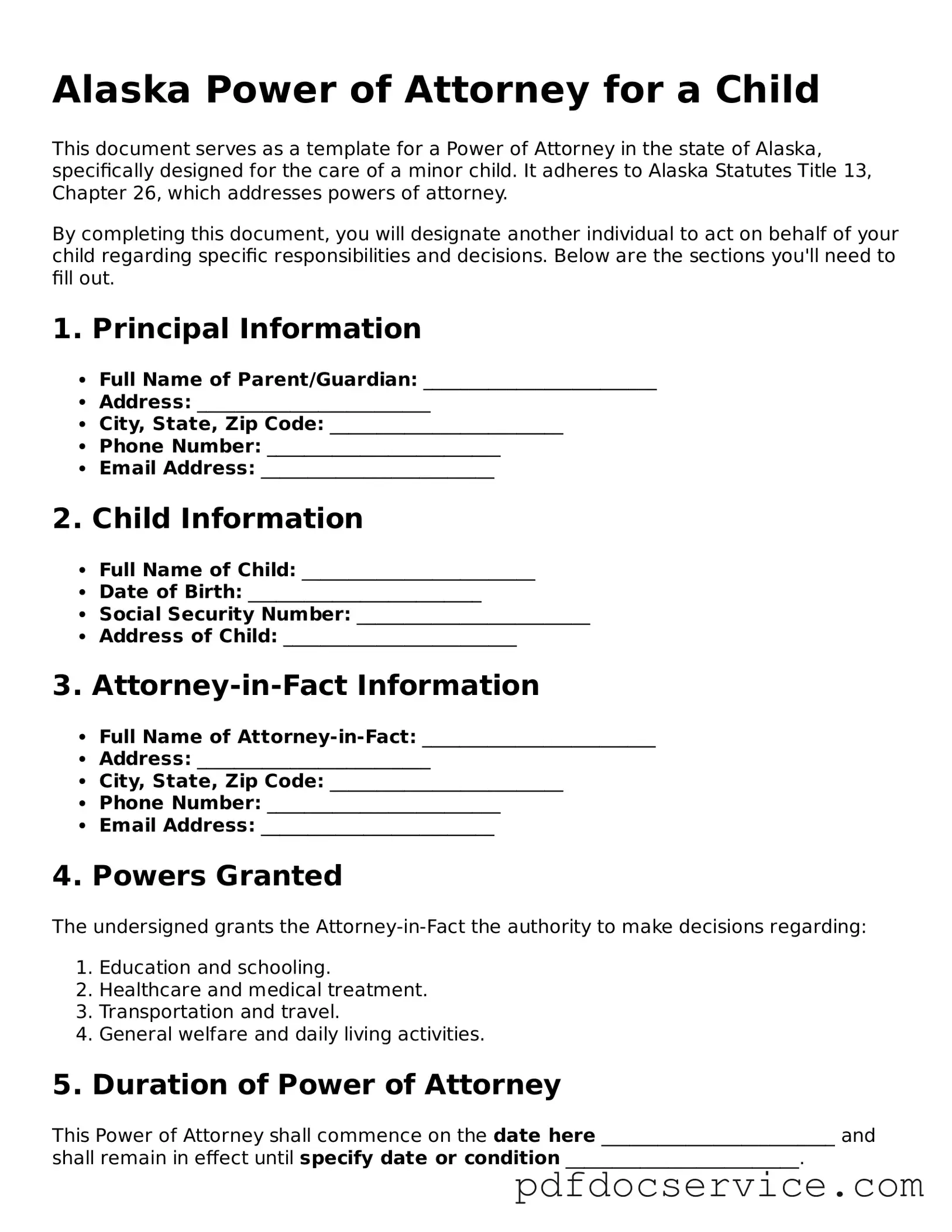Printable Power of Attorney for a Child Template for Alaska
The Alaska Power of Attorney for a Child form is a legal document that allows a parent or guardian to grant another individual the authority to make decisions on behalf of their child. This form is particularly useful in situations where parents may be temporarily unavailable, such as during travel or medical emergencies. Understanding how to properly utilize this form can provide peace of mind and ensure that a child's needs are met when parents cannot be present.
Open Power of Attorney for a Child Editor

Printable Power of Attorney for a Child Template for Alaska
Open Power of Attorney for a Child Editor

Open Power of Attorney for a Child Editor
or
Get Power of Attorney for a Child PDF
Finish the form now and be done
Finish Power of Attorney for a Child online using simple edit, save, and download steps.